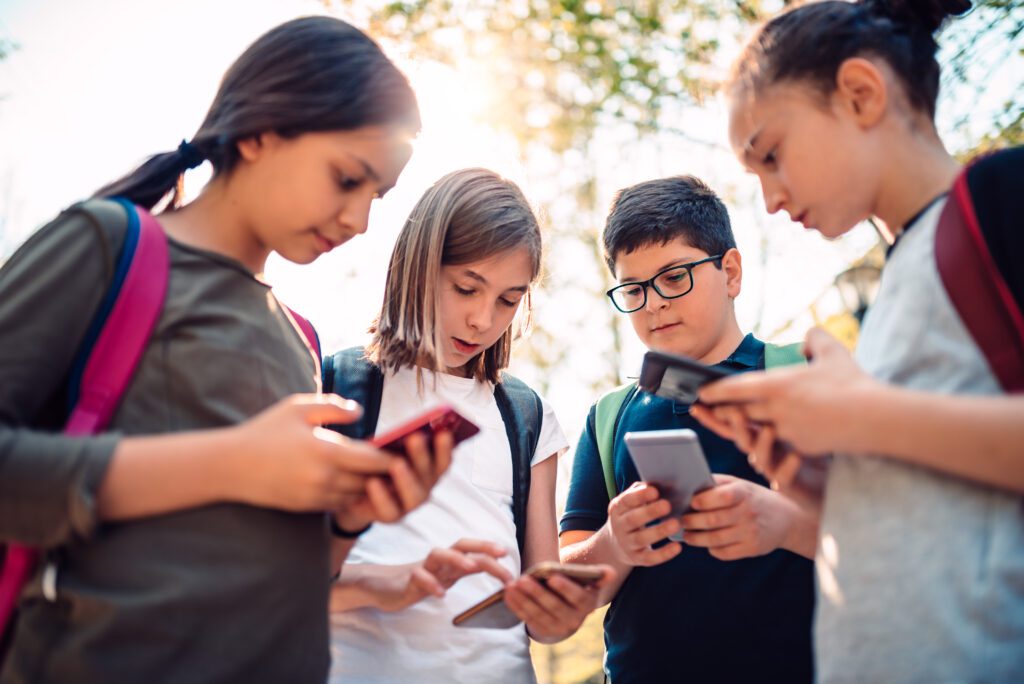by DR. JOY JACKSON
Social media use has increased in recent years, with kids and teens spending hours on social media platforms every day. Concurrently, mental health symptoms among young people have also increased. In 2022, 48.2% of surveyed students in Polk County reported feeling depressed or sad most days, compared to 47.3% of students across Florida. Current research shows that while social media offers some benefits, there are also signs that it may pose a threat to children’s mental health.
As technology evolves, children’s lives are becoming increasingly different from how their parents grew up. This leaves many parents wondering how to guide their children through an unfamiliar landscape and the challenges it brings. The Department of Health in Polk County (DOH-Polk) would like you to know that you’re not alone and would like to offer some tips to help protect your child.
Create a Plan
One of the first things you can do as a parent is to create a family media plan. It should include agreed-upon expectations for social media usage that both you and your child understand. Parents should take into account their individual child’s age, personality, and health when they set down guidelines. Banning social media for older children might be counterproductive, so work with them to create limits that allow balance between their schoolwork, hobbies, family time, and social media use. Keep in mind that most social media platforms require children to be at least 13 years old. In addition, children need eight to 12 hours of sleep depending on their age, one hour of physical activity every day, and time away from screens. You can use the American Academy of Pediatrics’ (AAP) established guidelines to help you get started with a family media plan at www.healthychildren.org/mediauseplan.
Communication Is Key
Talk to your child about healthy online behavior, how to stay safe, and explain the reasons behind the boundaries you’ve set for their social media use. Protect your child’s self-esteem by discussing how social media often presents an idealized version of life that doesn’t necessarily reflect reality. Teach your child what online abuse and harassment look like. Let them know they should come to you if they encounter it and make sure they know how to report any inappropriate behavior. Encourage your child to step away from social media if it makes them feel overwhelmed or inadequate.
Promote open communication between you and your child about the platforms they use and their online activities. Maintain ongoing conversations with your child about their online experiences and any challenges they may encounter. It’s important to create a safe space so that your child feels comfortable coming to you if they’re experiencing distress from their social media use.
Be Vigilant
Be on the lookout for red flags that social media use might be negatively affecting your child. If you notice your child becoming withdrawn, depressed, anxious, or speaking negatively about themselves, consider whether their social media use could be a contributing factor and take proactive steps to address it.
Nurture your child’s interests like spending time with friends in person, playing sports, and hobbies offline. Prioritize family activities together. Keep family time, including meals, free of devices. Instill healthy habits in your child from an early age, such as putting down the phone at least an hour before bedtime. Teach your child the value of staying in the moment without the distractions of social media.
Set an Example
Finally, model responsible social media behavior for your child. You have a bigger influence on your child than you realize. So, if you’re on social media constantly, they might also follow suit. By moderating your own social media use, you can improve both your and your child’s mental well-being and set a positive example.
About the Author: Dr. Joy Jackson, an internal medicine physician, serves the community as director of the Florida Department of Health in Polk County (DOH-Polk). For more information about DOH-Polk, visit mypolkhealth.org. Follow DOH-Polk on Twitter at twitter.com/FLHealthPolk.
